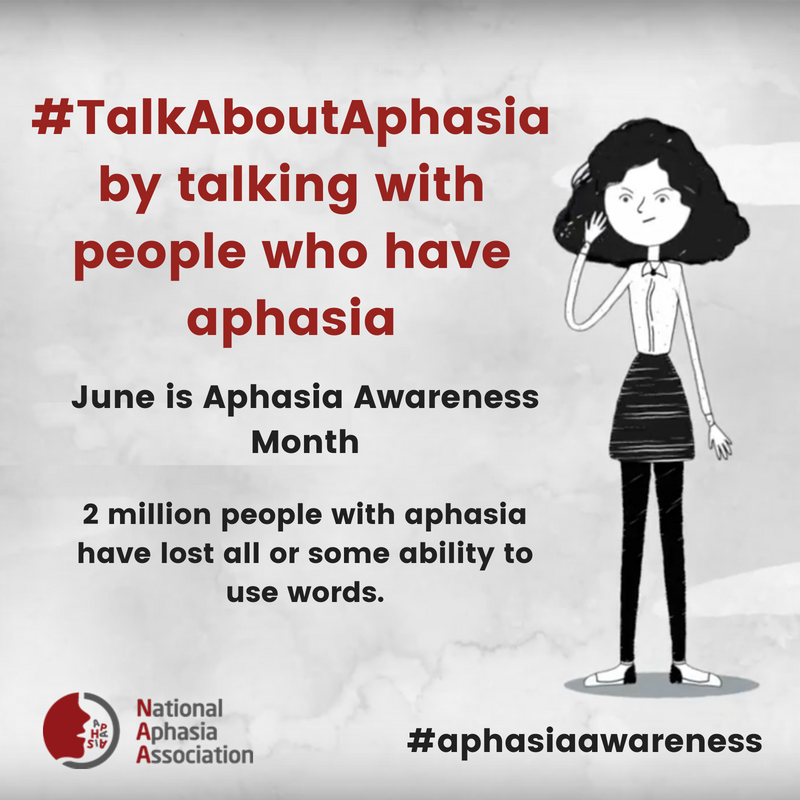June is Aphasia Awareness Month so the staff at Bowdle Healthcare Center wants to shed some light on the condition and provide some options for support.
What is Aphasia?
Aphasia is an acquired communication disorder that impairs a person’s ability to process language, but does not affect intelligence. Aphasia impairs the ability to speak and understand others, and most people with aphasia experience difficulty reading and writing. The diagnosis of aphasia does NOT imply a person has a mental illness or impairment in intelligence. Aphasia is usually caused by a stroke or a traumatic injury to the brain.
When someone has aphasia the ability to communicate using language is affected. Language includes: speaking, understanding the speech of others, reading, writing, gesturing and using numbers. It is important to keep in mind that aphasia affects everyone differently and that intelligence is NOT affected by aphasia.
When it comes to recovering with aphasia, there is no medical “cure.” Problems can last a long time. Most people improve over time, particularly if speech therapy is provided. Speech language pathologists or SLPs work with people with aphasia to help them regain skill or compensate for those they have not yet regained. Bowdle Healthcare Center’s speech language pathologist is TiAnn Boggs and has been working with the facility for several years.
Encouragingly, people’s aphasia can be helped even 10 or more years after onset if they have access to the appropriate intensive treatment. New imaging studies show with time, the brain can make new networks and heal.
Regarding the incidence of aphasia more people have aphasia than have many other common conditions, including cerebral palsy, multiple sclerosis, Parkinson’s disease, or muscular dystrophy. In fact, stroke is a leading cause of long-term disability. Stroke is also the 3rd leading cause of death in the USA, after heart disease and cancer. About five million people have survived strokes in the US and about one third of strokes result in aphasia. With that, there are currently at least two million people in the USA with aphasia.
APHASIA STATISTICS Pulled from the National Aphasia Association 2016 national survey on aphasia awareness.
- 84.5% of people have never heard the term “Aphasia.”
- 8.8% of people have heard of aphasia and can identify it as a language disorder.
- 34.7% of people that are “aphasia aware” either have aphasia or know someone that does.
- 31% of people agree or give a neutral response to the statement: “If a person has difficulties with speech, they also have intellectual deficiencies.”
- 84.1% of people make a connection between stroke and brain injury and difficulties with communication.
- 15.3% of people recall first hearing about aphasia from newspapers, magazines or online publications.
If you or someone you know has aphasia you can visit http://aphasiaid.com/ to print out a free aphasia ID card.
Source: https://www.aphasia.org
